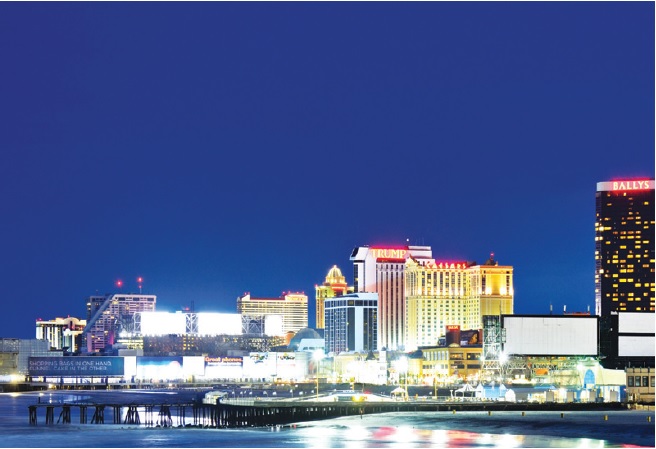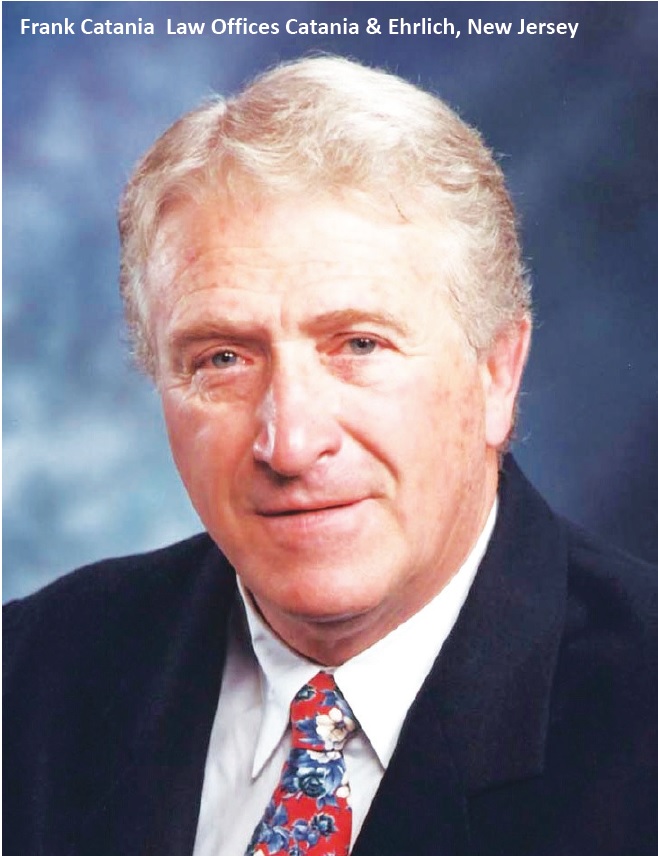More challenges ahead for New Jersey by Frank Catania

This November, New Jersey voters will not only be voting for President, they also will be voting on whether to allow two casinos in specific North Jersey locations, just minutes from New York City. This is not the first time voters in New Jersey were given the option of allowing casinos in North Jersey. A few years prior to the referendum allowing casinos in Atlantic City in 1977, a referendum allowing casinos statewide was defeated. Will the initiative be successful this time?
In 1977, New Jersey became the only state besides Nevada that allowed casino gaming. Atlantic City was the “Las Vegas of the East,” and it became the destination for those seeking the excitement of casino gambling, celebrity shows, and everything else associated with casinos. Resorts was the first casino to open and it became an immediate success. Soon after, other casino moguls such as Steve Wynn, Donald Trump, and others, began planning their entrance into the Atlantic City market and by the early 90’s, Atlantic City was grossing more than the Las Vegas strip. The Garden State Parkway, the main road between North Jersey, New York City, and Atlantic City, saw hundreds of buses daily taking players to a day of gambling in Atlantic City.
Competition for Atlantic City arose first with the opening of Foxwoods, a Native American casino in the western part of Connecticut approximately the same distance to New York City and North Jersey. Players now had a choice, yet Atlantic City casinos still flourished. However, politicians concentrated on the glitter of the casinos and paid little attention to the rest of the city. More redevelopment funds were used throughout New Jersey rather than in Atlantic City, and the population dwindled significantly.
The next challenge came when surrounding states began opening some form of casino gaming, whether it was a full casino experience with hotel and entertainment such as Pennsylvania, or as in New York, casinos without live dealers, just gaming machines. With so many other states in the area offering some form of casino gaming, Atlantic City saw a sharp decrease in revenue and casinos started to close or declare bankruptcy. This also meant a large drop in casino tax revenues for the state.
A dispute arose in the legislature between northern state representatives, being pressured by the new owner of the Meadowlands race track, located just across the river from New York City, and their southern counterparts, who wanted Atlantic City to be the only casino location in New Jersey. A compromise was reached and a bill was sent to Frank Catania Law Offices Catania & Ehrlich, New Jersey the Governor for a referendum to be placed on this November’s ballot, for the voters to decide whether to allow two North Jersey locations in which a casino could be established, the Meadowlands and Jersey City. Both these locations are just minutes from New York City.
 Those supporting and opposing this referendum contain different subgroups. South Jersey residents, which includes the suburbs of Philadelphia, oppose because they do not want more competition for Atlantic City and a further decline in the gaming industry there. Anti-gambling organizations will also be campaigning against since they believe all gambling is wrong.
Those supporting and opposing this referendum contain different subgroups. South Jersey residents, which includes the suburbs of Philadelphia, oppose because they do not want more competition for Atlantic City and a further decline in the gaming industry there. Anti-gambling organizations will also be campaigning against since they believe all gambling is wrong.
Those jurisdictions in which the proposed casinos will be located will be supportive since they will see additional local tax revenues. Some North Jersey residents will see it as providing jobs. Others, who commute into New York City, might visualize more traffic adding more time to their daily commutes, and could possibly vote “No.” Still others throughout the state will see it as an expansion of gaming and all the problems that go with it, and definitely vote ”No.” So simply put, the chances of the referendum passing is as reflected in many polls, no better than 50/50, maybe yes and maybe no.
My opinion, for whatever it is worth, is that the referendum will fail and Atlantic City will remain the only casino venue in New Jersey. However, by way of disclaimer, my last prediction at an ABA conference in September 2006 was that Congress would never approve the Unlawful Internet Gambling Enforcement Act. A few days later, it was attached to another bill and passed.
Frank Catania Law Offices Catania & Ehrlich, P.C. Catania Gaming Consultants, New Jersey frank@cataniaconsulting.com

















